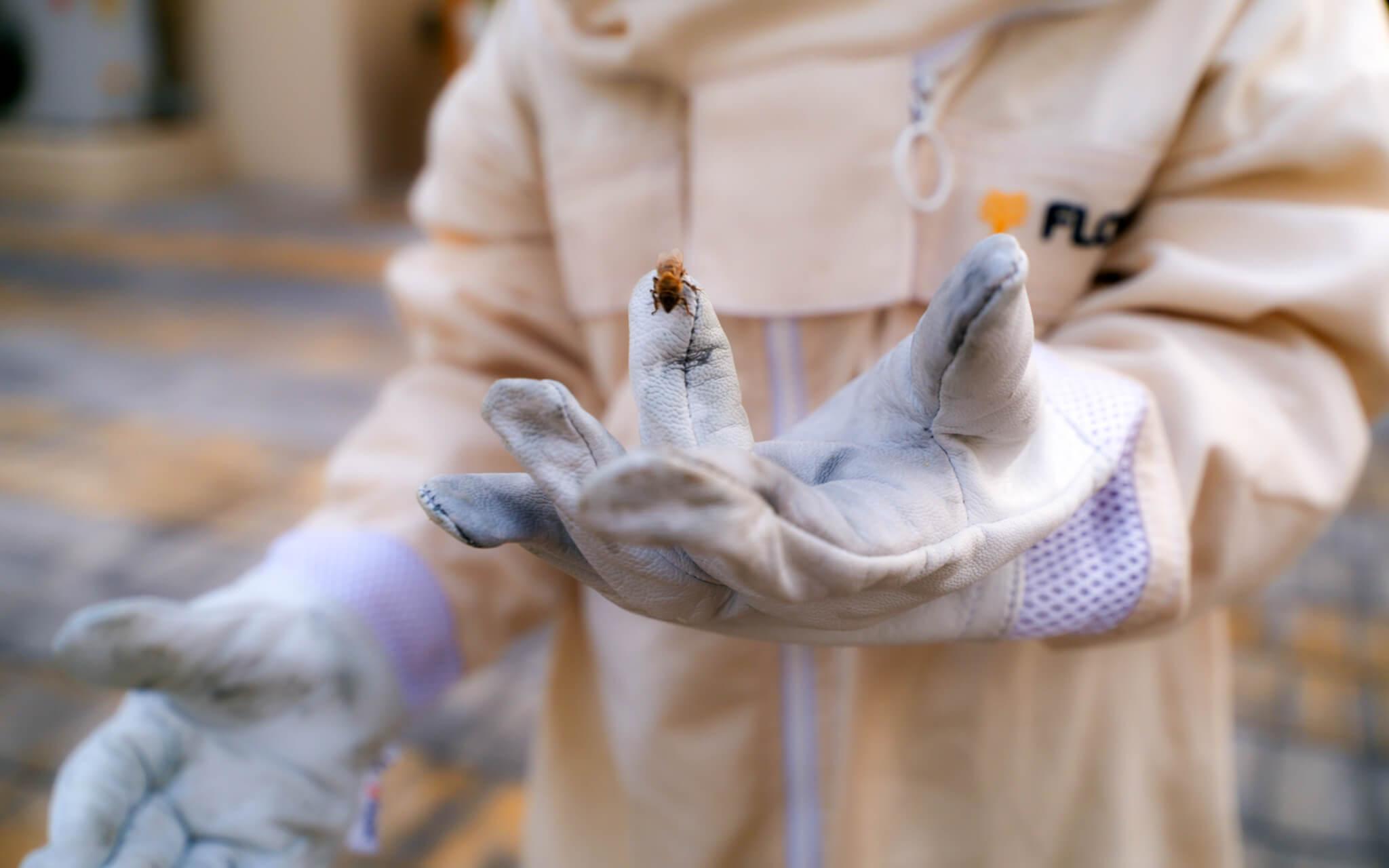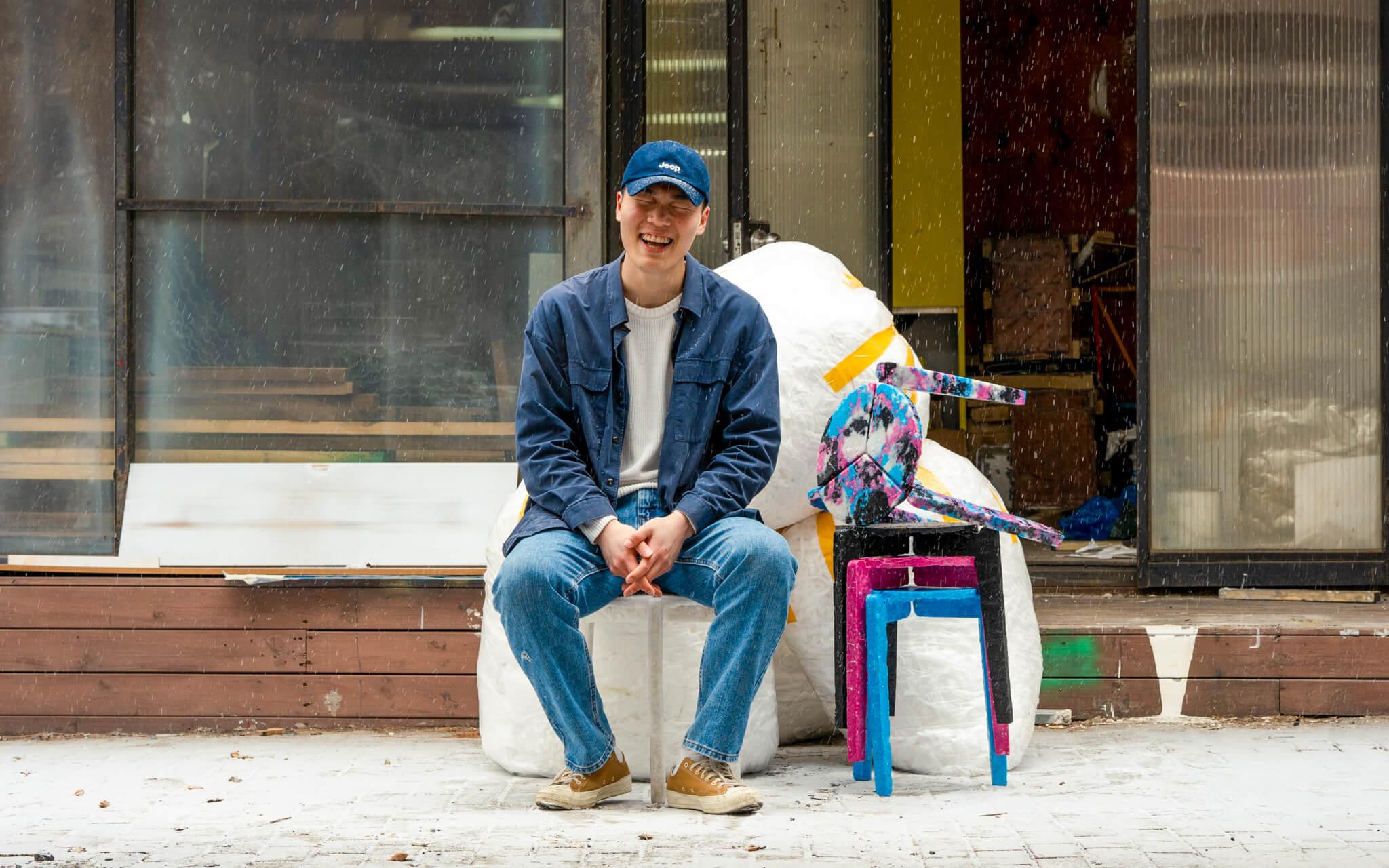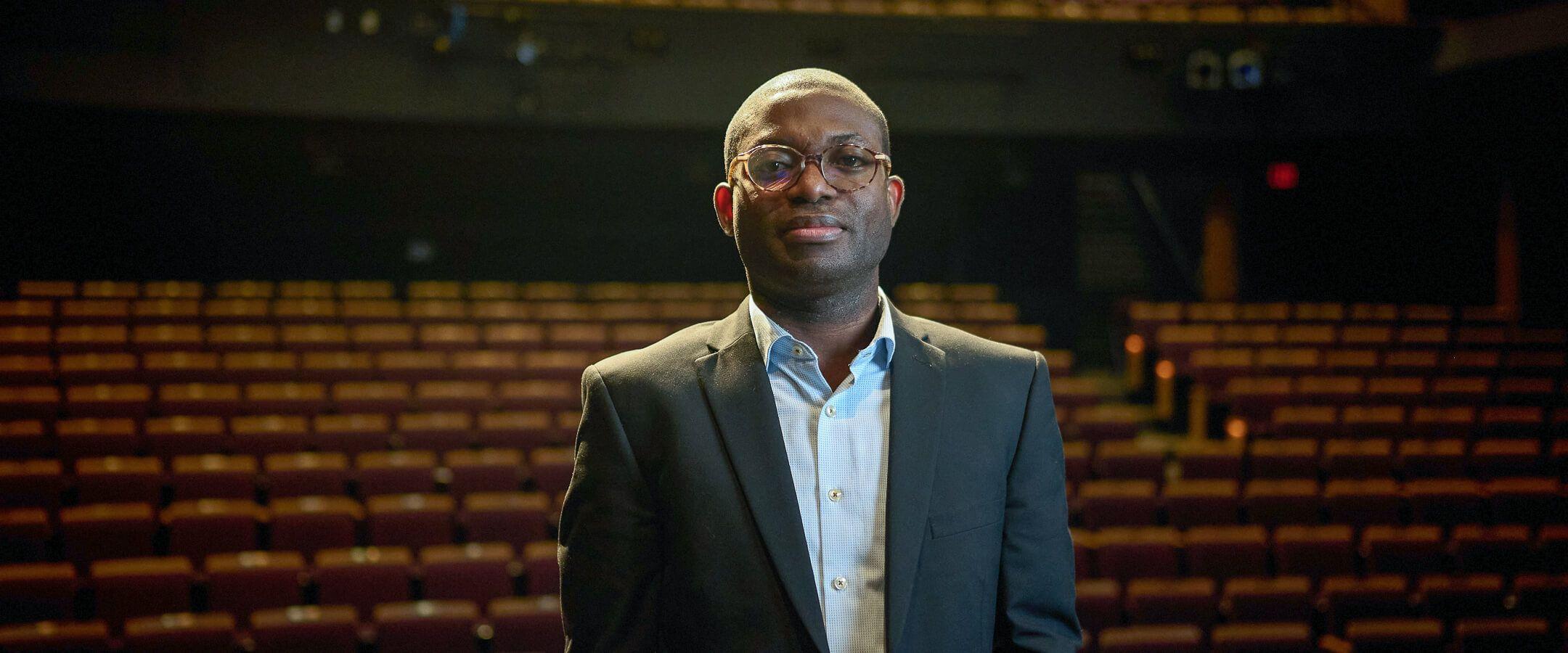Firm Roots in Renewed Soil
By restoring soil health and supporting a transition to regenerative agriculture, Sabon Sake is breathing new life into degraded farmlands in Ghana, promising a future of food security, climate resilience and smiling farmers.
When Audrey S Darko was a little girl, she could scatter tomato seeds in her courtyard in Akuapem, Ghana, and they would sprout in no time. The land was generous, overflowing with nutrients and fertile enough to feed any seed. Chilli pepper, avocados, coconut trees, maize and sugarcane flourished.
Audrey also bloomed from that very soil, putting down firm roots as she went on her childhood quests to solve pressing local problems. How do I protect the lizard eggs in that heap of sand? What if I built a seesaw on that mango tree?
She reminisces fondly, “My father cheered me to want to come up with solutions and not see an end to it all. That there were ways to actually break ground and persevere, regardless of what the situation looks like.”
“He’d tell me more about the essence of actually growing your own food and being able to grow it in a sustainable way. And it was beautiful to me.”
This fearless entrepreneurial spirit propelled her to action when she realised, years later, that her motherland was in deep trouble. It was 2019, and at the library of Ghana’s renowned Ashesi University, where she was pursuing a business degree, she’d read about the collapse of a nearby sugarcane factory, partly due to insufficient produce.
“Why would such a multi-million dollar factory, which brings a lot of joy to people, collapse in a couple of months, be resuscitated and then collapse again?” she thought.
Her weekend research trips to nearby farms revealed a landscape of despair for farmers. “They would tell me firsthand, ‘I used to grow okra and garden eggs without stress, and now there are a lot of pests invading, or you go seven, eight months without rainfall.”
The plants were struggling to grow, and yields were declining. “You go to a farmland and then you see cracks in the ground, and ask yourself – what is going on here? This place used to be a lush green field.”
She realised that the soil’s ecosystems were dying, with high acidity, nutrient loss, salinity and even heavy metal toxicity due to illegal small-scale mining operations on farmland. Over 35% of Ghana’s lands were degraded, and the number rose to a whopping 65% across Sub-Saharan Africa. The culprits include deforestation, overgrazing, overuse of chemical fertilisers, harmful agricultural practices and the climate crisis.
In March 2020, she founded Sabon Sake to restore the health of her native soils and transform mindsets. “Sabon Sake is a phrase in the Hausa language. It means to transform, or to make something new again.”
The solution she had been looking for came from the land itself. “Most of the climate-vulnerable farming communities are generating a lot of biomass waste from cocoa, rice, sugarcane, and maize crops.” Instead of the conventional burning or dumping of waste, it could be used to produce biochar – a type of charcoal and organic soil amendment made by heating biomass in an oxygen-free environment.
Sabon Sake is a phrase in the Hausa language. It means to transform, or to make something new again.
Biochar is a panacea - improving soil fertility, nutrient availability, water retention and biodiversity, sequestering carbon and removing up to 80% of heavy metals from contaminated soils. If all global crop residue were used to produce biochar, it could sequester one billion metric tonnes of carbon annually.
Sabon Sake starts with partnerships in rural farming communities. “We train and gather networks of farmers to exchange learning and knowledge on what it takes to preserve the environment.”
They set up biochar production centres close to these communities and turn locally collected agricultural waste into biochar and biochar-based organic fertiliser, which is then sold to farmers. Audrey says, “We're creating a circular economy and a closed loop system where waste is converted and put back in the soil, and then the cycle goes all over again.” The farmers also join the Regenerative Farming Network, which opens up a world of opportunities for collaboration.
Challenges were rife, from starting Sabon Sake’s work in a region where Audrey was unfamiliar with the local language to the difficulty of convincing farmers to change established conventional farming methods. They set up demonstration farms to involve farmers and increase their sense of belonging and ownership to the project, Audrey says.
Thanks to Audrey’s wins at competitions such as the Climate Launchpad in Ghana and the US Department of State Climate Entrepreneurs Pitch Competition at COP27, Sabon Sake secured early funding.
“Our success is bringing smiles to farmers’ faces.”
In one case, a farmer who reached out to them for help saw his yields of maize quadruple. “He called us back and said, ‘Guess what? I have 28 bags of maize now on my farm.” It used to be seven.
Even previously poisoned land was slowly becoming safe. When Sabon Sake tested crop samples at the lab, it showed that they were well below World Health Organisation thresholds for heavy metal contamination. “They were able to prove that if they continued in this practice, they could grow the food that they used to grow, and get back to being the farmers that they love to be.”
Today, Audrey envisions a future where Sabon Sake’s regenerative roots grow across Africa, renewing soils to once again nurture the seeds, dreams and prosperity of farming communities.
Most Popular
The Climate Tribe delivers stories about Biodiversity and Conservation, Circular Economy, Food and Water , and how they intersect with climate.
Subscribe
Get the latest stories inspiring climate action around the globe straight to your inbox.






